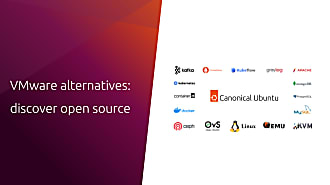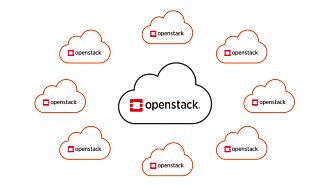Sarah Dickinson
on 2 December 2020
Forecasting the future of cloud with OpenStack experts

OpenStack, the cloud computing platform, has proved to be a beacon of success for open source. It rounds off 10 years in existence this year, a period which has seen it reach nearly 200 countries, and we want to look ahead to what the future holds for the technology. We’ve spoken to a number of journalists and other leading experts, including the Open Infrastructure Foundation, the organisation which manages the development of the technology, to understand how OpenStack may develop in the future.
While we’ve seen businesses of all sizes adopt OpenStack to embrace the cutting edge and engage with the likes of AI and containers, predicting its next steps is not such an easy question to answer. John Leonard, Research Editor from the UK’s Computing, explains: “That’s a little hard to say. Open source is now the default rather than the exception and there are many more open source collaborations now covering different areas, notably the Cloud Native Computing Foundation (CNCF). I expect OpenStack will end up focusing on areas of IaaS less well served by Kubernetes, perhaps around serverless and storage innovations.”
The flexibility to reinvent
Jack Wallen, award-winning writer for TechRepublic, The New Stack and Linux New Media focuses on how the flexibility of the technology will be integral to cloud as a whole: “The future of the cloud looks to lean heavily on services that extend well beyond standard storage-based solutions and more toward integration across clouds, between services, and into devices of every possible nature. Without open source tools, this simply wouldn’t be possible.
“With OpenStack, developers can retool and reinvent the cloud to not only meet the growing demands of enterprise businesses, but create new use-cases that have yet to be considered. The future of the cloud is not only open, it’s OpenStack.”
Jonathan Bryce, Executive Director at the Open Infrastructure Foundation is also in-line with these thoughts on the evolution of OpenStack: “For the next decade of open infrastructure, OpenStack will continue to evolve to meet its demands, including hardware diversity, GPUs, FPGAs & ARM architectures, integration requirements to meet use cases like 5G, edge, and IoT, and the requirements for running infrastructure at scale. With more open source than ever, it is critical to ensure that OpenStack—and other emerging software projects—continue to integrate successfully in production.”
While its benefits are customisable and can therefore be seen as universal, some feel they will become crucial in specific industries over the coming years. Steven J. Vaughan-Nichols, a leading tech journalist who’s been covering OpenStack since the first 2010 Austin release commented: “Looking ahead for OpenStack, I see it growing ever more important as the foundation for major vertical markets.
“We’ve seen this already happen with telecoms and software-defined networking (SDN) and Network Function Virtualization (NFV). Next up I foresee OpenStack, probably in a service model, becoming vital to the Financial Technology (FinTech) sector. Institutions such as Sweden’s SBAB; GOV.UK Pay; and Banco Bilbao Vizcaya Argentaria are only the beginning.”
Building for everyone, on open source
It’s clear that OpenStack will continue to evolve, embrace other technologies and create different ways of viewing infrastructure. But as Georgi Georgiev, CIO of Japanese financial firm, SBI Bits, concludes, it’s core purpose will remain: “With the birth of the latest technologies such as containers and serverless workloads, OpenStack will play a key role to accommodate such demands in the coming years, both new and traditional approaches. With such demands, more communities will be involved in improving and contributing more projects and products that will further evolve OpenStack to a better product for everyone.”
That’s the key point – everyone. While companies can package up their own versions of OpenStack and build businesses upon this, they are also helping the common goal of improving the product as a whole. Collaboration within tech is nothing new but it remains absolutely crucial. When Sir Tim Berners-Lee invented the World Wide Web he chose not to profit from it, advising that “the web is for everyone and collectively we hold the power to change it.” The same is true of OpenStack and wider open infrastructure projects.
Tytus Kurek, Product Manager at Canonical believes the foundational element of OpenStack will prove important; “Whereas the interest has long spread to other technologies, OpenStack remains the foundation of private cloud infrastructure across many organisations. In the following years we’re expecting to see continuous improvements around its stability, security and integration as well as supportability for 5G, AI/ML, edge and even more advanced use cases.”
What’s vital though, is no matter how they grow over the coming years, OpenStack and its contemporaries remain true to the foundations and virtues of open source – ensuring that as many people can contribute and benefit.



